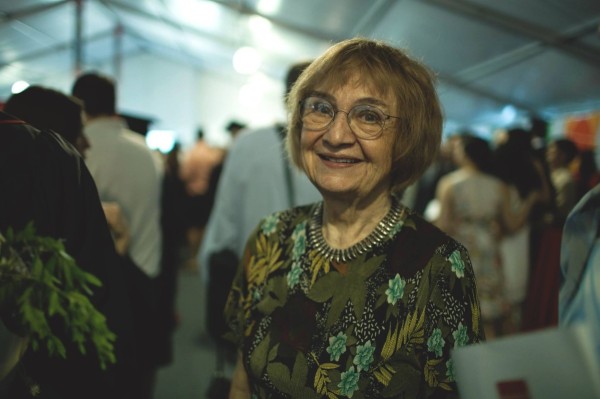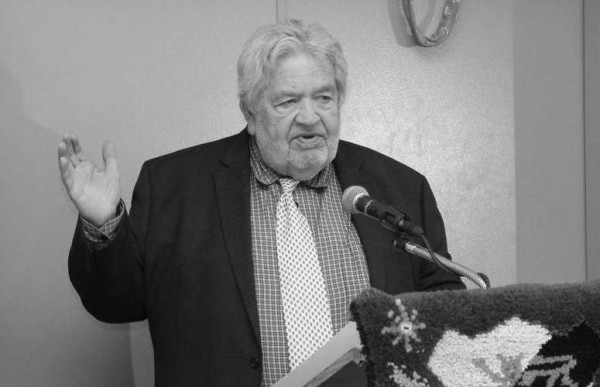by Jüri Talvet
IN THE OTHER CANON: VIIRLAID’S POETRY IN ENGLISH
Arved Viirlaid. Selected Poems. Selected and translated from the Estonian by T.E. Moks and R.W. Stedingh. Vancouver. Lyre Press, 2001. 194 pages. ISBN 0-9685172-2-6.
http://elm.estinst.ee/issue/14...
Any literature created in a minor language seems to be destined to face a double barrier as soon as it tries to reach the wider world. Firstly, there’s the obvious language difficulty and, secondly, the reluctance of publishers to deal with anything that comes from “obscure” and “unknown” parts of the world, i.e. from outside the mainstream languages and majority cultures. Rarely, if ever, have these barriers been surmounted without the aid of personal enthusiasm.
In the present case, the enthusiasm of the translators, the Estonian born US scholar Taimi Ene Moks and the American-Canadian poet and professor R. W. Stedingh, has been supported by the fact that Arved Viirlaid (b. 1922) is a solidly established Estonian emigrant writer, whose chef-d’oeuvre in prose fiction, the novel Graves without Crosses (in Estonian: Ristideta hauad, Lund, 1952) has appeared in translation, besides in English (Toronto, 1972), in French (1962), Spanish (1966), Chinese (1980), Swedish (1959), Latvian (1956), and Finnish (1968).
Viirlaid’s literary work started after the Second World War in London, after he, as a young man, had fought against the Soviet-Russian occupying armies both in Estonia and Finland, had fled before the end of the war to Sweden, and had found a temporary refuge in Great Britain. In 1953 he went on to Canada, where he settled permanently. In exile, he continued to write in his native Estonian, in which he has published eight novels, a collection of short narratives, and seven books of poetry. Because of his radical denouncement of Stalinist terror and the occupying communist regime, he was persona non grata in his native Estonia under Soviet rule as late as Gorbachov’s perestroika. While other exiled writers received at least a short mention in the outline History of Estonian Literature, by E. Nirk (1983; also in English, 1970, revised, 1987), Viirlaid’s name never appeared in the book. On the other hand, the authors of a recently published radically re-modeled history of Estonian literature (Eesti kirjanduslugu, Tallinn, 2001) - apparently under the pressure of keeping pace with postmodern “decrees” - have failed to duly appreciate Viirlaid’s contribution to Estonian and world letters. Thus, the novel Graves without Crosses - which really deserves to be treated in the same canon with the most outstanding existential war and prison novels, such as, for instance, Pasternak’s Doctor Zhivago or the gulag novels of Alexandr Solzhenitsyn - is only briefly described as not “artful” enough, while not a single title of Viirlaid’s poetry books has been outlined.
This explains, at least in part, why R.W. Stedingh, in his extensive and highly valuable “Introduction” to Viirlaid’s Selected Poems, has had some trouble in attempting to locate Viirlaid’s poetry in the body of Estonian poetry. Without direct access to the Estonian, he has had to rely on a few older writings about the general state of Estonian poetry, such as those by the late critics Ants Oras and Ivar Ivask, published in exile. However, following these few guidelines and his own intuition, Stedingh has not only correctly suggested Viirlaid’s indebtedness to the Arbujad (or “Logomancers”) post-symbolist group of the 1930s, but has also gone further to relate Arbujad to the Russian neoparnassian-symbolist poets (Gumilyov, Akhmatova, Mandelstam, and others) who, as early as 1913, became known as “acmeists” (from the Greek akmē, the highest point, or perfection). Stedingh, thus, stresses craftsmanship in Viirlaid’s poetry, of which he defines the main philosophical line as “pantheistic transcendentalism”.
Selected Poems is, indeed, a chronologically arranged selection from all seven poetry books by Viirlaid, from A Vagabond’s Gospel (Hulkuri evangeelium, 1948) to Light under the Reefs (Valgus rahnude all, 1990). Like any sensible selection in translation, the present one, too, works to the advantage of the poet and the poetic tradition he represents. It becomes a quintessence of what otherwise, in the original Estonian, may occasionally include more hesitant material. It may be surprising, in view of Viirlaid’s unembellished, pitilessly realistic prose fiction, that his poetry, as if following Poe’s principle of keeping poetry and prose totally separated, seldom engages in flatly political images or “low” details. Those few that still appear, for instance in Hand in Hand (Käsikäes, 1978), have not been selected for translation.
The “translation leveling” in the other, restrictive sense, can be spotted in Selected Poems, only in the few cases when translation as such has turned out to be virtually impossible. Thus the translators have had to omit a series of masterfully achieved balladic poems in Songs of Longing (Hõllalaulud, 1967), which rely on the traditional Finno-Ugric folk song’s mixture of visual images with the play of alliteration and assonance, a kind of an untranslatable “language poetry”.
The overall impression of Selected Poems is highly positive. R.W. Stedingh, who has worked on the literal translations provided by T.E. Moks and the author, has been able to carry out successfully his principle of “creative translation” – instead of academically rigid attachment to the external forms of the original poems. His task has been alleviated by Viirlaid, who throughout his poetic work – in contrast with the preceding generation of Arbujad, who were fond of precise rhyme patterns- has generally relied on free verse. Yet, Stedingh has also managed to provide some perfectly harmonious rhyme translations (such as “A Thousand Times” in A Vagabond’s Gospel). While rendering Viirlaid’s concrete poems in Hand in Hand, he has given, for instance, a brightly inventive ring to the ending of the poem “…Peculiar / beings”, where “until Amen became no men” wonderfully reflects the embittered, and sometimes sarcastically coarse-grained, but penetratingly humane world vision of Viirlaid’s poems. Selected Poems is a worthy contribution to the other canon of Estonian literature: the one that, despite its inevitable halts and casualties, still, brick by brick, goes on building the image of Estonian literary culture in the eyes of the world.
Jüri Talvet,
University of
Viirlaid's Poetry in English
In Memoriam | 24 Jun 2015 | EWR
In Memoriam
TRENDING
























